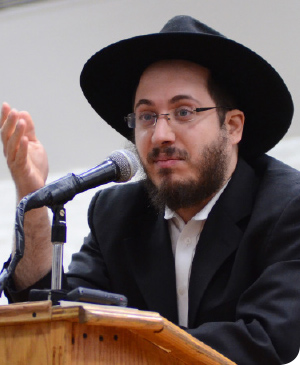UNITY THROUGH HALACHA

Dear Reader sh’yichyeh,
This Shabbos (Parshas Shmos) falls out between two very special dates: 20 Teves – the Yahrtzait of the Rambam, and 24 Teves, the Yahrtzait of the Alter Rebbe. Much has been written and explained about the similarities between these two giants. This article is to explain the “Hakhel Connection” to the two baalei hilula and the connection to Moshiach (based on the sicha of Shmos 5748).
On a very basic level, the Rambam and the Alter Rebbe were both codifiers of Jewish law. Even though by learning basic Halacha we ignore the depth and analysis of the reasons for the Halacha, learning Halacha touches the core and essential connection of a Jew with Hashem. There are two very distinct “Hakhel components” to this idea:
Firstly, to codify Jewish law, one must gather from all the different parts of the Torah and compile it together. To come to a Halachic ruling, one must sift through the entire corpus of the Talmud and its commentaries, figure out the conclusion, and explain the variegated details in an orderly fashion. This is the concept of Hakhel, i.e., gathering together, in Torah itself.
[We also see this idea in the Alter Rebbe’s basic Seifer of Chassidus, the Tanya. The name of the seifer is “Likkutei Amarim,” which means a collection and gathering of teachings.]
We also see the idea of gathering and uniting in Halacha, in the fact that although there may be multiple opinions on any given matter, once the Halacha is established, everyone unites around it and follows the same Halacha.
Secondly, the entire concept of Hakhel is to strengthen a Jew’s commitment to Hashem. In the words of the Pasuk (D’varim 31:12): “Assemble the people: the men, the women, and the children, and your stranger in your cities, in order that they hear, and in order that they learn and fear the Lord, your God, and they will observe to do all the words of this Torah.”
How does one “observe to do all the words of this Torah”? There is only one way: through following Halacha. Halacha is Hashem’s wisdom for a Jew to live and direct his life. As Yidden which are being inspired by the year of Hakhel, we have to thank the Alter Rebbe and the Rambam for putting the halachos together so that we can learn them in an orderly and practical fashion and cement our commitment to Hashem.
This idea – that something that looks external, like the final Halacha, is connected to the essence of Hashem – is also connected to the name of this week’s Parsha, Parshas Shmos. The word Shmos means Names. A name is seemingly something very external; something that someone uses to call a different person. Seemingly, if someone lived in isolation he would not need a name. Yet we see that when one calls the name of another person, the entire person turns to him, with their entire essence.
There is a well known story of the Alter Rebbe who was holding his young grandson, the Tzemach Tzedek, in his lap. The child said to his grandfather: “Zeide, Zeide!”
The Alter Rebbe asked him: “Where is Zeide?” The grandson pointed to the head of his grandfather. The Alter Rebbe said, “This is the head, but it’s not Zeide.” The child then pointed to the Alter Rebbe’s heart and said, “This is Zeide.” The Alter Rebbe responded, “This is the heart, but it’s not Zeide.” The grandson continued to point to the other parts of the Alter Rebbe’s body in order to find the place where “Zeide” is. To all these attempts the Alter Rebbe responded that he had merely indicated a specific limb of Zeide, but not Zeide.
The child then climbed down from his grandfather’s lap and began walking around on his own. When he approached the door, he pretended that his fingers had gotten caught in the door and began to yell, “Zeide, Zeide!”
The Alter Rebbe turned to the child and said: “What is it my son; what happened?” The child replied: “This is Zeide!!”
This story demonstrates that although a name is seemingly external to the person, and is only necessary for others, paradoxically, the name of a person relate to his very essence.
Learning Halacha is also very connected with Moshiach: Chazal (Midrash VaYikra 7:3) tells us that the geula will come in the merit of learning Mishnayos. The Rebbe explains (Toras Menachem 5752 Vol. 1 pg. 179 footnote 17) that this includes – and means – the learning of Rambam and Halachos. For when Moshiach comes, we will see the special essential connection that Hashem has with Halacha as is evident by the fact that Halacha will never be abolished.
In conclusion: In honor of the Rambam and Alter Rebbe, let us renew our dedication to learning the daily cycle of Rambam that the Rebbe initiated and make sure to add in our learning of Halacha. This is a true benefit to us, as Chazal (Tanchuma B’Shalach 20) say: One who is involved in his livelihood and makes an effort to learn just two Halachos in the morning and two Halachos at night, is considered as if he kept the entire Torah! This is in addition to the famous Tanna d’Bei Eliyahu which says, “Whoever learns halachos every day is guaranteed a portion in the World to Come.”
Rabbi Avtzon is the Rosh Yeshiva of Yeshivas Lubavitch Cincinnati and a well sought after speaker and lecturer. Recordings of his in-depth shiurim on Inyanei Geula u’Moshiach can be accessed at http://www.ylcrecording.com.
 December 29, 2015
December 29, 2015
Reader Comments